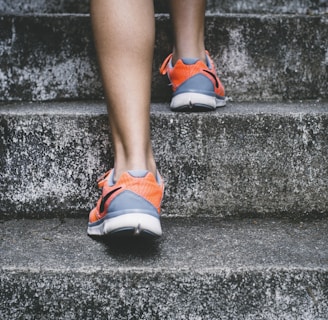Fitness and Wellness for 50+
Tips for maintaining mobility, strength, and mental resilience when you are over 50.
6/22/20243 min read


Fitness and Wellness Tips for Women Over 50
As we age, maintaining our health becomes increasingly important; for women over 50, fitness and wellness can play a crucial role in ensuring a high quality of life. Here are some research-driven tips to help you stay fit and healthy.
1. Regular Exercise
Regular exercise is key to maintaining a healthy body and mind. Aim for at least 30 minutes of moderate-intensity exercise most days of the week. This could include walking, swimming, cycling, or even dancing. Focus on activities you enjoy and build a routine around these activities. Start slowly and build up your endurance and activity over time. Remember, it’s never too late to start!
2. Strength Training
Strength training is essential for maintaining muscle mass and bone density. Once we hit 30, we begin to lose muscle mass more quickly. Regular strength training helps to offset age-related loss of muscle. Strength training can also help to prevent falls by improving balance. Consider incorporating resistance exercises into your routine at least twice a week.
3. Healthy Eating
A balanced diet is crucial for overall health. Focus on consuming a variety of nutrient-dense foods such as fruits, vegetables, lean proteins, and whole grains. Limiting processed foods and sugars can also contribute to better health. Do you have dietary restrictions, food allergies, a medical condition, or other constraints that affect your diet? We recommend working with a nutritionist that specializes in management of your restriction - check to see if your health insurance covers nutritionist visits.
4. Hydration
Staying hydrated is important for overall health. As we age, our sense of thirst may decrease, so it’s important to drink fluids regularly throughout the day. Aim for at least 8 glasses of water per day. Just remember not to overdo it - like all good things, moderation is key. Hyponatremia, or low blood sodium, risk increases with age due to medications, age-related changes, and chronic diseases that alter the body's sodium balance. Sports drinks with electrolytes are a good option when you participate in energetic exercise. You can even make your own electrolyte water to save money and reduce calories.
5. Mental Wellness
Mental wellness is just as important as physical health and is often ignored when planning our fitness regimens. Life stressors don't suddenly decrease or disappear after 50 and it is important to maintain resilience to stay fit. Activities like meditation, yoga, and mindfulness can help reduce stress and improve mental clarity. Don’t forget to take time for yourself each day. Work on including and increasing mindfulness activities as part of your daily routine, and plan to check-in with yourself every day to acknowledge how you are doing.
6. Regular Check-ups
Regular health check-ups can help detect potential health issues early. Make sure to schedule regular visits with your healthcare provider and follow their recommendations for screenings and tests. Many of us put off regular check-ups for a variety of reasons - it takes time, it's expensive, we don't have good health insurance coverage, we are caretaking for someone else. Remember to prioritize yourself and your health, including vision, dental, mental, and physical health. As we age, we are more prone to chronic diseases that affect our fitness and wellness - getting regular check-ups can ensure we detect and manage high blood pressure, diabetes, high cholesterol, and many other issues that can undermine our well-being.
7. Social Connections
Maintaining social connections can contribute to mental wellness. Spend time with loved ones, join clubs or groups, or volunteer in your community. The risk of loneliness increases with age, and loneliness has been determined to be just as detrimental to well-being as smoking. If you're an introvert, making and keeping social connections comes with increased challenge. Making use of technology to establish and maintain connections is a game-changer when you're over fifty. Learning to use tools opens a world of possibilities, whether it's video-calling, joining an online forum or community, taking courses that interest you on-line, or even just texting with a friend or family member.
8. Adequate Sleep
Getting a good night’s sleep is essential for overall health. Aim for 7-9 hours of sleep per night. If you have trouble sleeping, speak with your healthcare provider. As we get older, our need for sleep often decreases, so determine what amount of sleep is ideal for you. More important than the number of hours is the quality of sleep you're getting. There are many strategies to improve your sleep quality, beginning with ensuring that your bedroom/sleeping space is set up to promote good sleep. This means that it's comfortable, quiet, dark, and at the right temperature. Incorporating meditation or evening yoga helps many people relax at bedtime - find the right bedtime routine for you. Learning what to avoid is just as important. Heavy, late meals can disrupt good sleep, as can higher-exertion exercise late in the day. Keep track of your activities to identify the specific things that affect your sleep quality.
Remember, everyone’s journey to fitness and wellness is unique. What works for one person may not work for another. Listen to your body and do what feels best for you. Here’s to your health!
